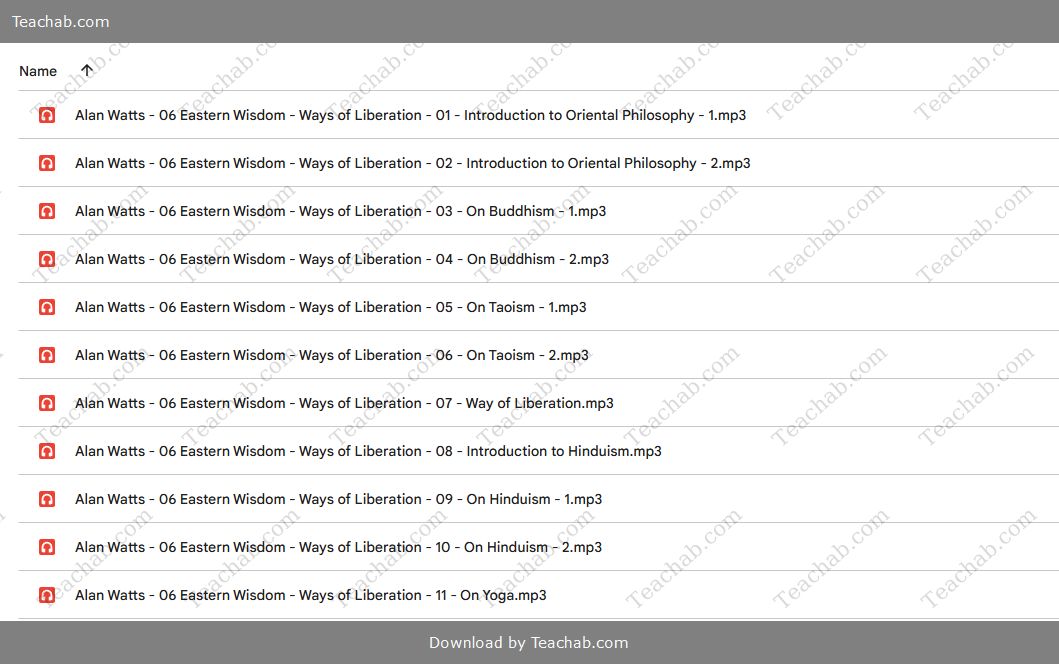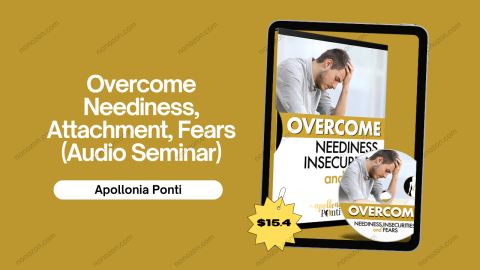Ways of Liberation
by Alan Watts
Get Ways of Liberation by Alan Watts Digital Download!
You can check proof of content here

Ways of Liberation by Alan Watts
Overview

Ways of Liberation by Alan Watts: A Thought-Provoking Journey
Alan Watts’ Ways of Liberation is more than a book—it is an invitation into a dynamic exploration of Zen Buddhism and other philosophical perspectives that probe the nature of the self and existence. Centered around the foundational essay The Way of Liberation in Zen Buddhism (originally written in 1955), this work serves as a concise introduction to Zen thought. It also anticipates the deeper examinations Watts would later undertake in The Way of Zen. With clarity and literary flair, Watts presents complex philosophical concepts in accessible language, appealing to both newcomers and experienced spiritual seekers.
Zen and the Path to Liberation
The cornerstone essay delves into the essence of Zen practice, emphasizing that spiritual liberation is not a destination but a fluid process of self-discovery. Watts challenges readers to release fixed ideas about identity and ego—a particularly daunting task in a culture deeply tied to materialism and self-definition. Through comparisons with Western existentialism, he highlights how Zen offers a transformative view of self, grounded not in intellectual analysis but in direct, intuitive experience.
Watts’ unique approach underscores the paradoxes of Zen: the need to let go of striving, to be present without attachment, and to encounter enlightenment not as a goal, but as the realization of what already is.
Play and Survival: A Dialectical Dance
In one of the more playful segments, Watts explores the relationship between play and survival, framing it as a philosophical inquiry rather than a psychological treatise. He proposes that contrary to conventional assumptions, play is not a frivolous counterpoint to survival, but a vital expression of being.
By embracing joy and spontaneity, Watts argues, individuals reclaim a sense of balance in life. This section invites readers to reflect on how humor, wonder, and light-heartedness are not distractions from serious life but integral to spiritual liberation.
East Meets West: Bridging Cultural Paradigms
In the essay The Relevance of Oriental Philosophy, Watts turns his attention to cross-cultural understanding. He skillfully introduces Eastern perspectives—especially Zen and Taoist thought—to a Western audience, many of whom are rooted in Christian theology or rationalist philosophy.
Watts addresses this gap not by dismissing Western thought but by highlighting how Eastern philosophies can complement and enrich it. He demystifies core Eastern ideas, showing how they speak to universal human concerns like suffering, meaning, and transcendence. In doing so, he lays the groundwork for deeper intercultural dialogue and spiritual synthesis.
Chuang-tzu and the Philosophical Power of Humor
A particularly engaging section highlights the Taoist sage Chuang-tzu, known for using humor and parable in philosophical reflection. Watts celebrates Chuang-tzu’s wit as an essential, not accidental, feature of wisdom. Unlike the solemn tone typical in much of Western philosophy, Chuang-tzu’s stories lighten the intellectual load, inviting a playful but profound engagement with reality.
By elevating humor to a tool of insight, Watts reminds readers that philosophy need not be austere. Insight can emerge through laughter, and liberation can be approached not with strain but with joy.
Meditation as Practice and Presence
The book concludes with The Practice of Meditation, a gentle yet powerful introduction to meditative awareness. Watts strips away mystique and dogma to present meditation as a simple, grounded practice of presence. His instructions are practical—focusing on the breath, allowing thoughts to rise and fall without attachment—and deeply human.
In Watts’ hands, meditation is not a remote ascetic discipline but a gateway to reconnecting with the present moment and one’s inner nature. This section is particularly valuable for beginners, offering both encouragement and clarity.
Conclusion: A Gentle Guide Toward Self-Discovery
Ways of Liberation is a remarkable collection that blends philosophical depth with literary ease. Watts’ tone is simultaneously playful and profound, bridging complex Zen teachings and Western curiosity with rare eloquence. By weaving themes of detachment, presence, humor, and cross-cultural understanding, he crafts a guide not just to Zen thought but to a more liberated way of living.
Whether readers are seasoned in spiritual practice or simply curious about Eastern thought, this book offers valuable insights into the nature of self, the illusion of control, and the joy of being. Ways of Liberation stands as an enduring contribution to East-West philosophical dialogue and remains a touchstone for those seeking clarity in the chaos of modern life.
Related products

Making Contact, Satir Process, Personal Workbook, Forgiving Parents PDF bundle
by Virginia Satir
$100.00
$38.50

Overcome Neediness, Attachment, Fears (Audio Seminar)
by Apollonia Ponti
$129.00
$15.40



